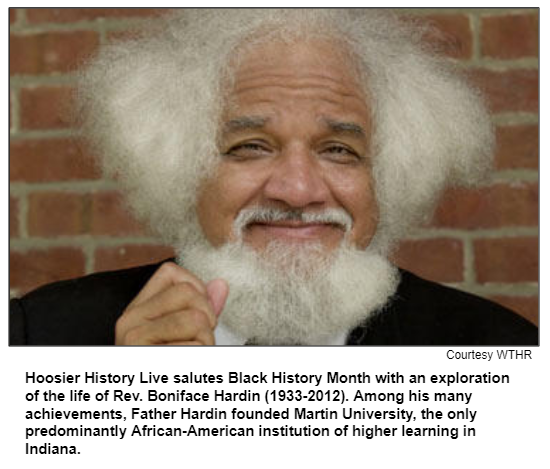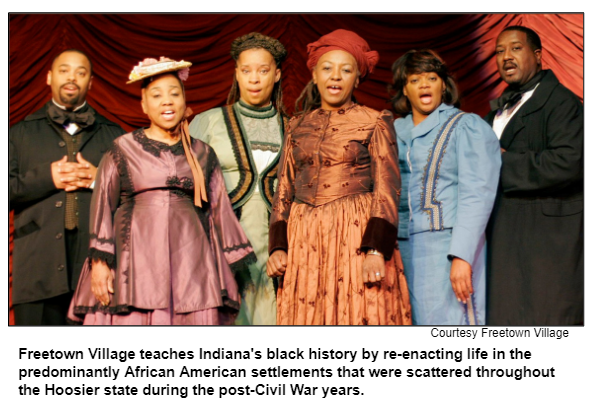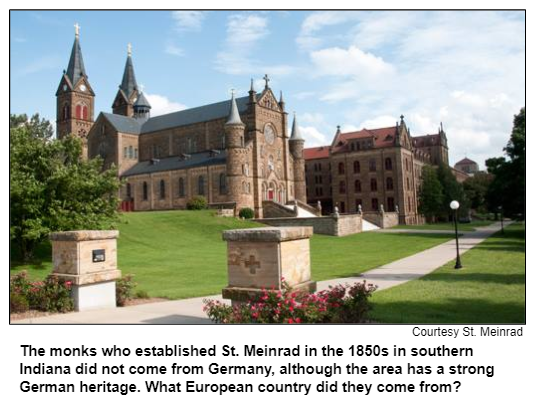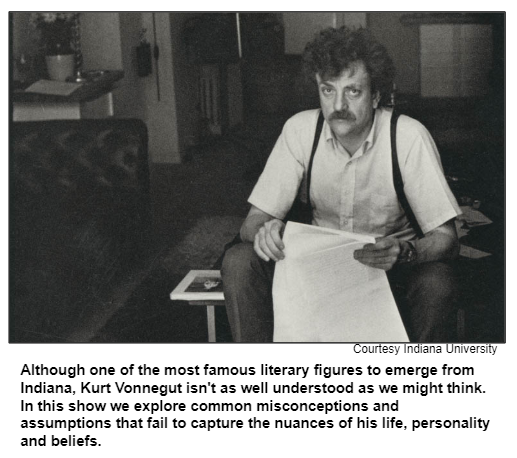
Saturdays, noon to 1 p.m. ET on WICR 88.7 FM.
Or stream audio live from anywhere on WICR Online!
You can listen to recent shows by clicking the podcast links below, or check out our extensive archive of past shows available as podcasts.
February 8, 2020
The life and impact of Rev. Boniface Hardin
With what was often described as a "cloud of white hair" and a distinctive beard, Rev. Boniface Hardin would have drawn attention even if he had not emerged during the 1960s as one of the most prominent civil rights activists in Indianapolis.
As Hoosier History Live salutes Black History Month, we will explore the impact of Father Hardin (1933-2012), the founder of Martin University, the only predominantly African-American institution of higher learning in Indiana. He was among the first wave of black students to attend St. Meinrad Seminary in southern Indiana during the 1940s and '50s; when Father Hardin was ordained in 1959, he was one of only 88 black Catholic priests in the country.
The nearly 50 years he was based in Indianapolis were eventful, to say the least.
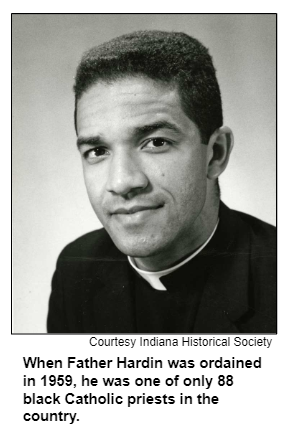
In addition to Father Hardin's unflagging advocacy on behalf of disenfranchised people - and his crusade to provide new educational opportunities - he was well known in later years for his public re-enactments of one of his role models: 19th-century abolitionist Frederick Douglass, to whom he bore a remarkable physical resemblance.
To share insights about Father Hardin, who had a soft voice but a compelling, folksy speaking style, two guests will join Nelson in studio:
- Nancy Chism, the author of a new biography of Father Hardin, Pickin' Cotton on the Way to Church (Indiana Historical Society Press). Nancy, who retired as associate vice chancellor of IUPUI, chairs Martin University's board of trustees.
- And Joseph Smith Sr., a retired attorney and former parishioner at Holy Angels. His family had a decades-long friendship with Father Hardin.
Father Hardin was born and grew up in Kentucky. He came to Indiana, as our guest Nancy Chism reports in her biography, after he was "excluded from the seminaries in Kentucky because of his race."
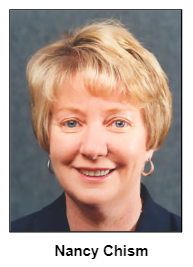
Martin University evolved out of Martin Center, a non-profit organization that Father Hardin founded; it offered workshops on racial harmony, programs for leadership development among African-Americans and a clinic dedicated to testing for and disseminating information on sickle-cell anemia, a severe hereditary disease that is most common among those of African descent.
"With typical disregard for the complexities entailed," Nancy Chism writes, Father Hardin decided that founding a university should be his next mission. He named Martin University (initially known as Martin College) in honor of Martin Luther King, Jr., and Martin de Porres, a Catholic saint who advocated for social justice.
Particularly in the early years, Martin's students primarily were adults who had not been able to attend college immediately after high school. By the 2007-08 academic year, Father Hardin's final term as president, 961 students were enrolled.
Roadtrip: Freetown Village brings African-American history to life
Guest Roadtripper Ophelia Wellington, founding director of Freetown Village, invites us to join her for a "living experience in African American history" to learn about black lives, arts, and culture in Indiana.
Freetown Village, which calls itself "a living history museum without walls," was dreamed up by Ophelia in the early 1980s as a way to teach local African-American history by re-enacting life in the predominantly African American settlements that were scattered throughout Indiana during the post-Civil War years.
Ophelia tells us that Freetown Village originally came to life as a pilot project for the Indiana State Museum. The project then grew into a long-term exhibit, with actors portraying characters living in the 1870s and performing monologues in the staged settings of a seamstress shop and a barbershop.
Although the State Museum exhibit closed in 2001, Freetown Village lives on in the form of educational programs performed throughout the Midwest. Ophelia explains that Freetown Village programs have been presented in "schools, churches, libraries, museums, theaters, centers, parks, hotels, offices, gymnasiums, parades, homes, and for almost every type of event or occasion."
Be sure to join Ophelia on this intriguing look into the history of African-American Hoosiers!
History Mystery
In southern Indiana, St. Meinrad Archabbey, where Boniface Hardin studied for the seminary, is in a scenic part of Spencer County. Like several of the nearby counties, including Dubois County, it has a deep German heritage.
But the monks who established St. Meinrad in the 1850s did not come from Germany. They arrived from an abbey in another European country.
Question: What was the country of origin of the monks who founded St. Meinrad?
The call-in number is (317) 788-3314. Please do not call in to the show until you hear Nelson pose the question on the air, and please do not try to win the prize if you have won any other prize on WICR during the last two months. You must be willing to give your name and address to our engineer and be willing to be placed on the air.
The prizes this week are a gift certificate to Story Inn in Brown County, courtesy of Story Inn, and two tickets to Indy's Teeny Statue of Liberty Museum, courtesy of Tim and Julie's Another Fine Mess.
Get involved with Hoosier History live!
Would you like to contribute prizes for our History Mystery? It's a great public relations move for your business or organization. Hoosier History Live listeners are an educated, sophisticated bunch - just the kind of customers or supporters you'd like to reach.
If you would like to contribute a History Mystery prize, we prefer items that can be mailed in a standard business envelope, such as a gift certificate or tickets.
Also, we are looking for a downtown or southside (near UIndy) restaurant that would like to host our show guests for lunch about 1:30 pm Saturdays after the live show. In exchange we will offer show underwriting.
And finally, if you would like to start a listening group to listen to the live show Saturday from noon to 1, it's a fun way to get people into your business or organization. Great for libraries, small businesses, and senior centers, too. All you need is a quiet room and a listening device. And an organizer.
Interested in any of these ideas? Contact molly@hoosierhistorylive.org for details.
More praise for Hoosier History Live
"Molly Head and Nelson Price are Indiana-based visionaries who have created a compelling and engaging media project with Hoosier History Live. Podcasts, website, enewsletter, and live call-in radio show; it’s all there!"
- Keira Amstutz, President and CEO, Indiana Humanities
Nelson Price, host and historian
Molly Head, producer/general manager, (317) 927-9101
Michael Armbruster, associate producer
Cheryl Lamb, administrative manager
Richard Sullivan, senior tech consultant
Pam Fraizer, graphic designer
Garry Chilluffo, consultant
Please tell our sponsors that you appreciate their support!

 For organizational sponsorship, which includes logos, links, and voiced credits in the show and in podcasts, contact producer Molly Head at (317) 927-9101 or email her at molly@hoosierhistorylive.org. Our podcast listens are increasing at a rate of 17% a month!
For organizational sponsorship, which includes logos, links, and voiced credits in the show and in podcasts, contact producer Molly Head at (317) 927-9101 or email her at molly@hoosierhistorylive.org. Our podcast listens are increasing at a rate of 17% a month!
Acknowledgments to Visit Indy, Fraizer Designs, WICR-FM, Henri Pensis, Aaron Duvall, Chloe Tyson, and many other individuals and organizations.
Thank you!
We'd like to thank the following recent, new and renewal contributors whose donations help make this show possible!
- Bruce and Julie Buchanan
- David Willkie
- Coby Palmer in memory of Gary BraVard
- Tim Harmon
- Jane Simon Ammeson
- Kathleen Angelone
- Chuck and Karen Bragg
- "Jingle Bell Rock" in memory of Bobby Helms
- Theresa and Dave Berghoff
- Dr. William McNiece
- Ann Frick
- Margaret Smith
- Carl and Kathleen Widland
February 15, 2020 - coming up
Vonnegut and an array of misconceptions
Some folks assume Kurt Vonnegut seldom visited Indianapolis after he achieved fame. Others claim the literary lion disliked his hometown - intensely and continuously - until his death in April of 2007.
Still others make assumptions about his religious and spiritual beliefs. Then there are those who think of him as a curmudgeon. And those who assume that most of Vonnegut's extended family members remain involved in the multi-generational hardware business that his great-grandfather, Clemens Vonnegut, founded in the 1850s.
Our show will explore a range of misperceptions - as well as aspects that are much more nuanced than often assumed - related to the author of the classic Slaughterhouse-Five (1969) and other bestselling books, including the semi-autobiographical Palm Sunday (1981).
We also will explore little-known episodes in Vonnegut's life. Nelson's studio guest Julia Whitehead, executive director of the Kurt Vonnegut Museum and Library in Indianapolis, will talk about how Vonnegut and his first wife, Jane, were inadvertently involved in the cruel hoax that became known as "reverse Freedom Rides" during the turbulent 1960s. Tune in to hear details about the infamous "rides" initiated by segregationists in the Deep South - and the connection to Cape Cod, Mass., where the Vonneguts had a home.
Julia and Nelson will be joined during the show by Dan Simon, founder of Seven Stories Press, the New York-based publisher of Vonnegut's final three books, including A Man Without a Country (2005). In addition to being Vonnegut's publisher, Dan was his editor and friend.
© 2020 Hoosier History Live. All rights reserved.
|
